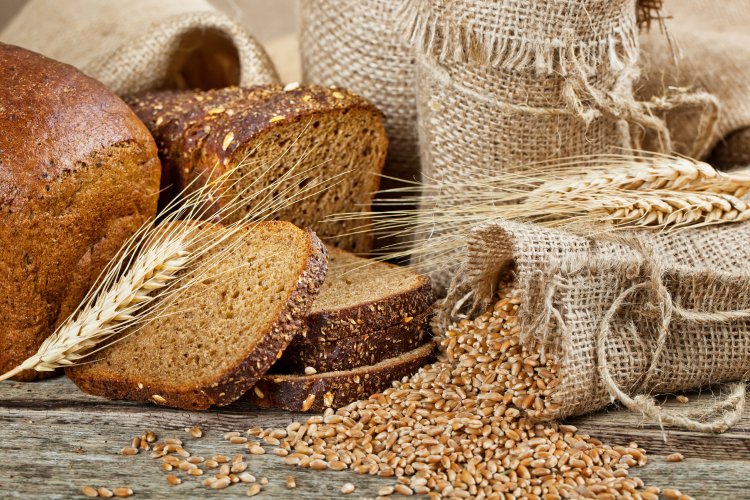Grain Power: Unveiling the Nutritional Wonders of Whole Grains
Whole grains are an essential component of a healthy diet, offering a wealth of nutrients and health benefits. Unlike refined grains, which have been stripped of their bran and germ during processing, whole grains retain these nutritious components, providing fiber, vitamins, minerals, and antioxidants that support overall health.

Nutritional Profile of Whole Grains
Whole grains are rich in:
- Fiber: Both soluble and insoluble fibers promote digestive health, regulate blood sugar levels, and support weight management.
- Vitamins: Including B vitamins (thiamine, riboflavin, niacin, folate) important for metabolism, and vitamin E, a potent antioxidant.
- Minerals: Such as iron, magnesium, selenium, and zinc, essential for energy production, immune function, and cellular health.
- Antioxidants: Phytochemicals like phenolic acids and flavonoids, which protect cells from damage caused by free radicals.
Health Benefits of Whole Grains
- Heart Health: Regular consumption of whole grains is associated with reduced risk of heart disease. The fiber helps lower cholesterol levels and improve blood vessel function, while antioxidants reduce inflammation and oxidative stress.
- Weight Management: High fiber content in whole grains promotes satiety, aiding in weight control by reducing overall calorie intake and preventing overeating.
- Digestive Health: Insoluble fiber adds bulk to stool, promoting regular bowel movements and preventing constipation. Soluble fibers like beta-glucan (found in oats) support beneficial gut bacteria.
- Diabetes Management: Whole grains have a lower glycemic index compared to refined grains, resulting in slower and steadier rises in blood sugar levels. This helps regulate insulin response and reduces the risk of type 2 diabetes.
- Cancer Prevention: Some studies suggest that diets rich in whole grains may lower the risk of certain cancers, particularly colorectal cancer, due to their fiber content and antioxidant properties.
Types of Whole Grains and Culinary Uses
- Whole Wheat: Used in bread, pasta, and baked goods. Whole wheat flour adds a nutty flavor and hearty texture to recipes like whole wheat bread, whole wheat pasta dishes, and muffins.
- Brown Rice: Ideal for pilafs, stir-fries, and salads. Brown rice has a chewy texture and nutty flavor that pairs well with vegetables, proteins, and sauces.
- Oats: Versatile for breakfast cereals, granola bars, and baked goods. Rolled oats are used in oatmeal, overnight oats, and oat cookies for their creamy texture and ability to absorb flavors.
- Quinoa: A complete protein source suitable for salads, pilafs, and as a gluten-free alternative. Quinoa's mild flavor and fluffy texture make it ideal for grain bowls, stuffed vegetables, and side dishes.
- Barley: Used in soups, stews, and as a risotto alternative. Pearl barley adds a chewy texture and nutty flavor to dishes like barley soup, barley risotto, and mixed grain salads.
How to Incorporate Whole Grains into Your Diet
To enjoy the benefits of whole grains:
- Start Your Day Right: Enjoy oatmeal with fruit and nuts, or whole grain toast with avocado for breakfast.
- Explore Whole Grain Flours: Experiment with whole wheat flour in baking recipes, such as whole wheat pancakes or whole grain bread.
- Add Texture to Salads: Include quinoa, barley, or brown rice in salads with fresh vegetables, herbs, and a light vinaigrette.
- Upgrade Your Side Dishes: Substitute white rice with brown rice or quinoa in pilafs, or use whole wheat couscous for a nuttier flavor.
In conclusion, incorporating whole grains into your diet is a flavorful and nutritious way to support overall health. Whether you're aiming to improve heart health, manage weight, or enhance digestive function, the diverse culinary uses and nutrient-rich profile of whole grains make them a valuable addition to any meal plan.
Disclaimer
The information provided in this article is for educational purposes only and should not be considered medical advice. If you have any health concerns or are experiencing symptoms, it is important to consult with a healthcare professional, such as a doctor or clinic, for proper diagnosis and treatment. Always seek the advice of your doctor or other qualified health provider with any questions you may have regarding a medical condition. Do not disregard professional medical advice or delay in seeking it because of something you have read in this article.
Hashtags
#WholeGrains #HealthyEating #Nutrition #DietTips #HealthBenefits #Fiber #HeartHealth #WeightManagement #DigestiveHealth #DiabetesManagement #CancerPrevention #HealthyLifestyle
What's Your Reaction?





















